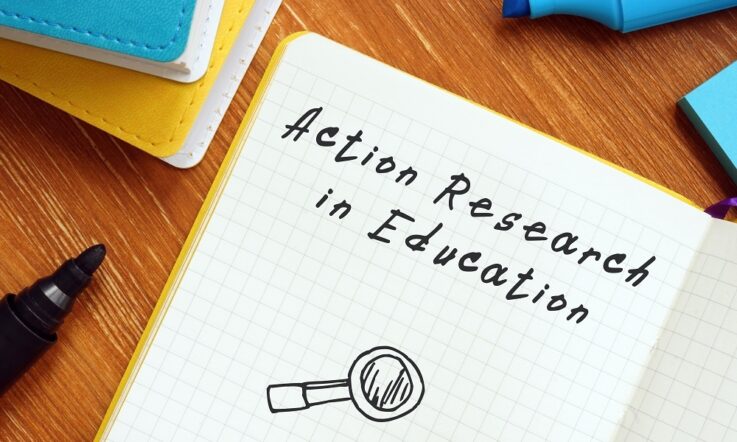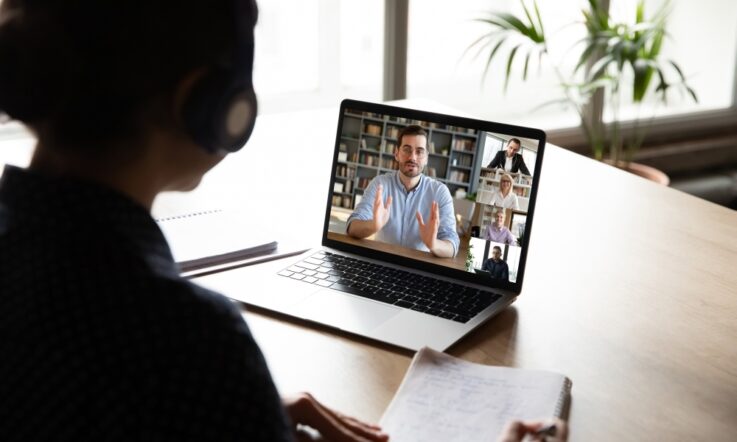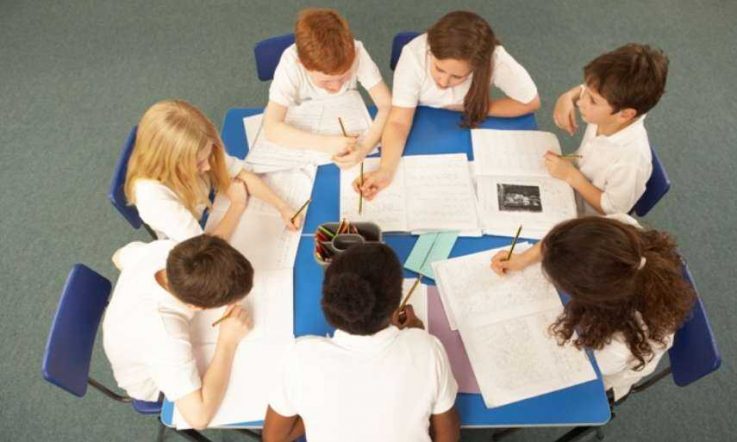If you’re considering conducting your own action research or entering into a collaboration with academics, you’ve probably got lots of questions about what’s involved and how it differs from traditional professional development. In the first of 3 articles about a new Australian project researching Problem Based Learning in schools, Associate Professor Kathy Smith and Dr Jennifer Mansfield discuss the role of teachers as co-researchers and share educator insights on 4 key aspects of their experience so far.
Working as co researchers is a new experience for many teachers. ‘Formal research’ (Fenstermacher, 1994) can often look and feel different to the highly personalised and largely intuitive, informal daily inquiry many teachers undertake in their classrooms. Yet both are legitimate forms of research (Loughran, 2010) providing different insights about the relationship between teaching and learning.
Exploring Problem Based Learning in Schools is an Australian Research Council funded linkage project which actively positions teachers as co-researchers with academics. Teachers are utilising their specialised knowledge of school context and practice to understand how principles of Problem Based Learning (PBL) can be effectively translated into school-based contexts. This research will produce a pedagogical framework for PBL in STEM education.
Using a practitioner-focused professional learning approach, teachers from Melbourne Archdiocese of Catholic Schools (MACS), Brisbane Catholic Education (BCE), and Diocese of Sale Catholic Education (DOSCEL) are working with academics from Monash and Queensland universities.
Over 3 years and across 5 professional learning (PL) days, teachers and academics are exploring relevant information and experiences. School-based support from BCE and MACS enables teachers to learn more about how they are implementing school based ‘action plans’ and developing informed, evidence-based insights about PBL in STEM.
Understanding the teacher experience
As co-researchers, teachers frame questions to understand their teaching practice, experience uncertainty as they grapple with the tensions of new ideas, analyse data, and work collaboratively with others to share insights. This is challenging work. This is also risky business, particularly for teachers as they open the classroom door to share knowledge with the education community.
Recently, at the third PL day, Brisbane teachers shared their thoughts about what it is like to be positioned as co-researchers. Their comments provide insight about 4 key aspects of the experience: taking ownership of decision making; feelings of uncertainty; co-constructing new knowledge; and allowing time for learning.
Taking ownership of decision making
In this project, teachers are placed as key decision makers about what matters for their learning. After first developing an action plan to guide their research about an aspect of PBL they wish to investigate in STEM, they must also take independent ownership to shape the progress of their investigation. This was acknowledged as a challenging experience.
So, we wrote our action plan and that was good, and I thought, “Okay, but now give us some input, and how do we do it? Just give us the answer on how we do PBL”. I felt like I was sitting in the learning pit of not really knowing what it looks like. Initially, it was a little bit frustrating. (Paul)
I noticed from the start... We were not treated like passive learners. At first, that made me feel a bit uncomfortable because we’re like, “What have you given us? What can we take back to the classroom?” … However, this kind of pushed us to try different things, grapple with the problem, consider how we can best implement PBL in different ways in the classroom, or across different subjects and content areas. (Monique)
We moved into a space where we decided it was about trying and testing, and going a bit off script, and figuring out what we were going to do as teachers. (Rachel)
Feelings of uncertainty
As researchers, teachers don’t know the answers to the questions they pose and even deciding on the right questions to investigate can prove difficult. Uncertainty, while unsettling, is recognised as part of the experience.
I have noticed that working in this project is different to ‘traditional’ [professional development] experiences. After the first session, when we spoke about it back at school, we felt a bit lost. We didn’t really know where we were supposed to go. And I guess that’s the point. We are meant go out and research what we think PBL is and what it might look like in our school context, as there are obviously going to be differences between secondary and primary school contexts … we were like, “Oh my gosh, this is terrifying”, as we really were not sure what to do. (Natasha)
I’ve found the [professional learning] days useful. I think not knowing what to expect to start with … I think because I come from a very science background and it’s very structured, and its bang, bang, bang and you have to have a beginning and an end. But this is a lot less structured. (Ann)
Co-constructing knowledge
Teachers are developing their collaborative problem-solving skills while engaging in a collective process of testing ideas and grappling with uncertainty. Teachers value they are co-constructing new pedagogical knowledge.
Meeting with other teachers and talking about what we were doing and what they were doing really helped us define what we were thinking and doing. That discussion has been really valuable. (Rachel)
On the third day, we’re starting to talk about some of the principles behind PBL … conversations about how and why we do it. I’m really pleased to see what the teachers come out with in terms of what they’re seeing in their classrooms. Not only in themselves, but in their students as well. (Paul)
We realise there is no right or wrong way. What we find might works for us, may not work for others. But there are still some insights we can share, which will be of value to other teachers. (Natasha)
Allowing time for learning
The research process takes time and teachers value the space and permission this provides for reflection and learning:
I knew it was a 3-year project, and we had time to embed it. So, it’s unlike other PD where you’ve probably got a day or 2 here and there, and that’s it and off you go … this is pockets of learning, input over the 3 years. (Paul, PL Day 3)
Because it has been spread out, we’ve had time to implement things, and then reflect on them, see how they’ve gone, and then change or modify our teaching practice to improve the outcomes. So, yeah, it’s been good. (Monique).
I find that I’m given time now to think about where I’m supposed to go, and what I’m supposed to do. And it gives me time to settle and go, “Hey, I can actually have some ideas about this stuff”. (Ann)
The teacher voice above shows that, although initially uncomfortable for teachers, being positioned as co-researchers has changed the learning process from a traditional PD format. Drawing on formal research, teacher-based research and research on data generated by the project team, academics and teachers continue co-researching together to ensure the intention of PBL in STEM is understood in ways which build student content knowledge while also enhancing their cognitive and social skills.
The authors would like to acknowledge the contributions of the following Brisbane based teachers: Rachel Warnes, St Columbans College; Paul Wilson, (Principal) St Ita’s Primary School; Natasha Perry, St Ita’s Primary School; Monique Farragher, San Sisto College.
This work was supported by the Australian Research Council [LP190100282]. Views expressed herein are those of the authors and are not necessarily those of the Australian Government or the ARC.
Stay tuned: In the next article teachers participating in this project explain how the experience of researching PBL in their STEM teaching has enabled them to develop a depth of understanding about principles of practice which frame a PBL approach. Teachers also explain how such understanding enables them to critically examine their teaching practice and the conditions necessary for meaningful STEM learning.
References
Fenstermacher, G. D. (1994). Chapter 1: The knower and the known: The nature of knowledge in research on teaching. Review of Research in Education, 20(1), 3-56. https://doi.org/10.3102/0091732X020001
Loughran, J. (2010). What expert teachers do: Enhancing professional knowledge for classroom Practice. Allen & Unwin.
Are there opportunities for staff at your school to develop a partnership with a local university? What about working with staff from another school? How could these partnerships benefit your own classroom practice?



